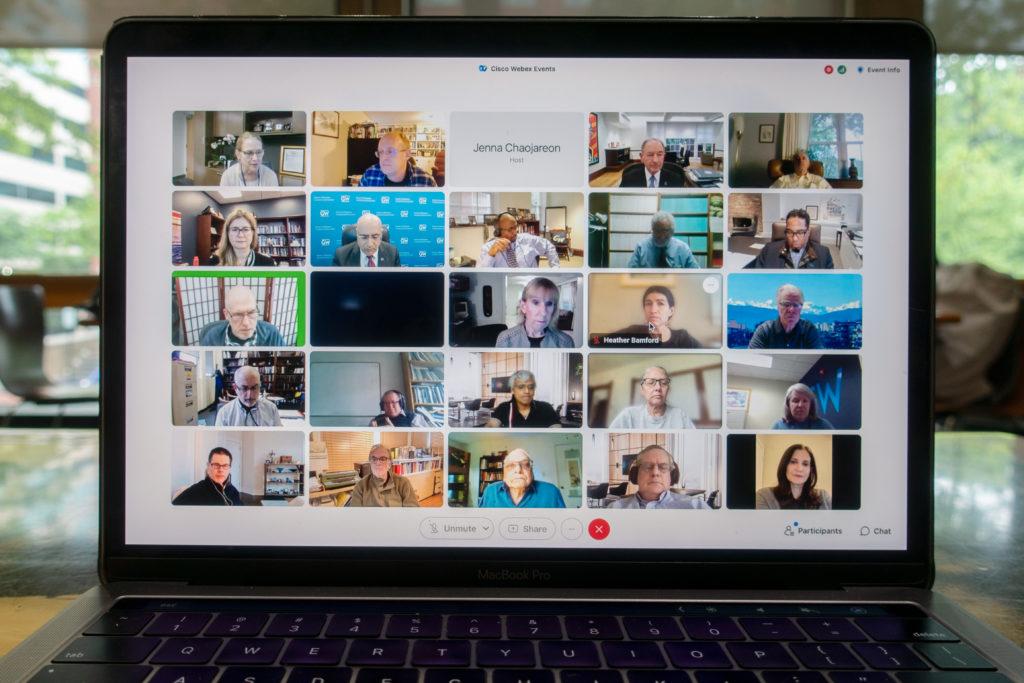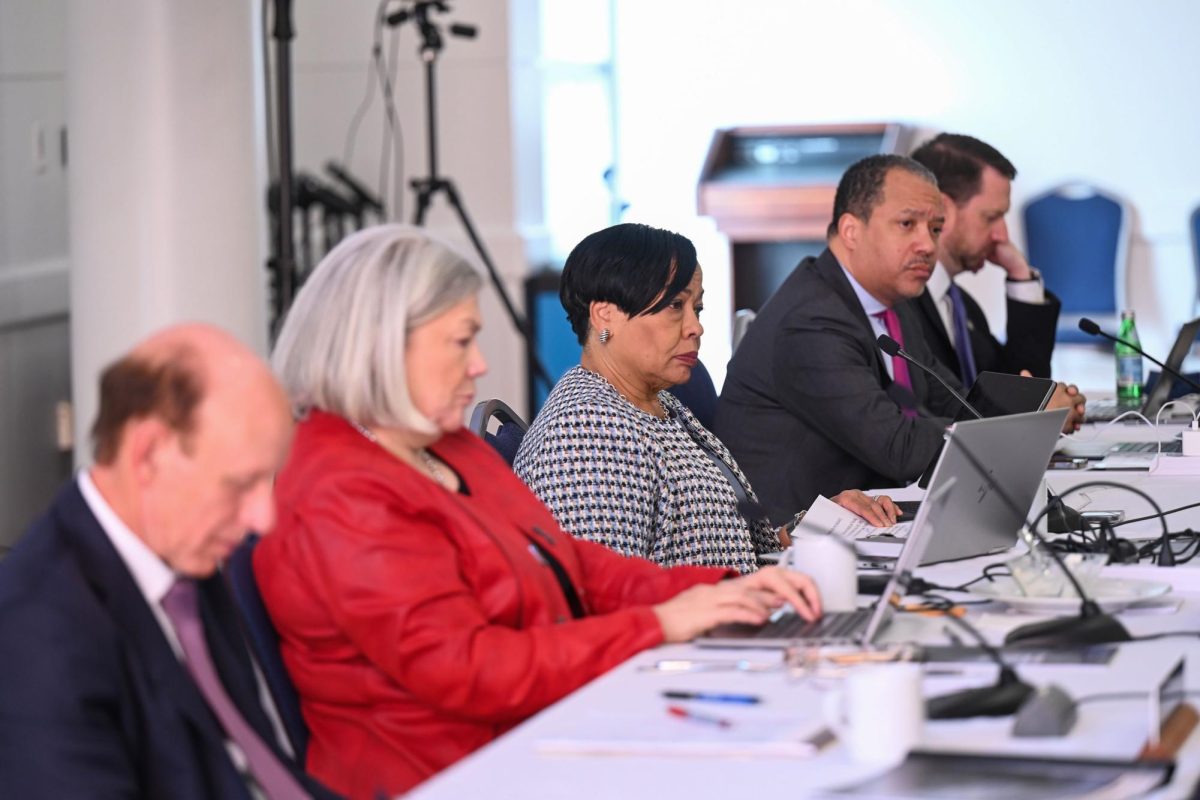Officials provided updates on the searches for top positions in the School of Nursing, the College of Professional Studies and other top administrative positions they expect to fill by the fall during a Faculty Senate meeting Friday.
Provost Chris Bracey said this spring officials confirmed search committees to find new deans for the College of Professional Studies and the School of Nursing, which are aiming to fill the administrative positions by the fall. He said the Office of the Provost also confirmed search committees that plan to conduct interviews this month to look for internal candidates for the vice provost of faculty affairs and vice provost for graduate and postdoctoral affairs, and external candidates for the associate provost for undergraduate affairs and special programs.
“I sent a message to the faculty last month alerting them to the postings in order to boost the internal applicant pool,” he said.
Bracey said the Diversity Program Review Climate Survey, which officials launched in April to collect data on the University’s diversity, equity and inclusion climate is continuing to have a “healthy response rate.”
“Please take the time to complete the survey before it closes if you have not done so, and encourage all of your colleagues and students to do the same,” he said. “The survey is collecting critical information that will help inform our pathway forward.”
The survey will close May 20 and Bracey said in an email last month that after the survey closes, the results will be “aggregated and analyzed” before being shared with the community as officials review the University’s diversity.
Interim University President Mark Wrighton also said at the meeting that he is recruiting candidates for the positions of Vice President and General Counsel, and Vice President for Communications and Marketing, which interim leaders have held for more than a year.
The professional ethics and academic freedom committee presented a resolution on changes to the Faculty Organizational Plan, like changing the number of faculty members needed to call a special meeting of the Faculty Assembly, but senators sent the resolution back to the committee until a task force revises the updates and present the changes to the senate again for a future vote.
Harald Griesshammer, a professor of physics and faculty senator, proposed the motion to send the resolution back to the committee and said either the committee or a task force should clarify the rationale behind changing the number of faculty members needed to call a special Faculty Assembly meeting before senators implement the changes into the organizational plan.
“This is a very important change and one doesn’t change the faculty organization plan on a whim and usually not on a Friday afternoon,” Griesshammer said. “That’s usually a long and protracted discussion.”
Barbara Bass, the chief executive officer of the Medical Faculty Associates and dean of the School of Medicine and Health Sciences, presented a new initiative that would integrate the MFA, School of Medicine and the GW Hospital into a collaborative partnership to propel the University health care enterprise into a “top 30” program in the country.
“I think there’s absolutely no reason we should not be a highly successful, not only from the research and educational perspective but clinical performance, financial entity in this organization and in this city,” Bass said.
Joe Cordes and Susan Kulp, the co-chairs of the fiscal planning and budgeting committee, presented a report on the structure and financial standing of the MFA. They said the MFA, which is financially independent from the University, has a negative net worth and has struggled to breakeven during the past five years.
“If you look at the data,” Cordes said. “It never really was very profitable, but it didn’t sort of lose money the way it has, which as we’ve said, is partly pandemic and other kinds of related.”
Senators also unanimously appointed Hugh Agnew, a professor of history and international affairs, to the senate’s executive committee for the fall 2022 term and re-elected Sarah Binder, a professor of political science, as the senate’s parliamentarian.
Senators also approved the chairs and rosters of the 2022-23 senate standing committees, faculty representatives on administrative committees and the 2022-23 senate calendar.
James Tielsch, a professor in the global public health program and the new chair of the senate’s executive committee, said he felt “optimism for progress” in efforts to improve shared governance and collaboration between administrators, Board of Trustees and faculty members amid the search for the University’s next president.
“My optimism does not underestimate the continuing work we do here at GW,” he said. “To realize the incredible potential of this institution as a senate, we need to continue to have high expectations for performance for education and research programs.”
Daniel Patrick Galgano, Ianne Salvosa, Isha Trivedi, Nick Pasion, Sophia Goedert and Zach Blackburn contributed reporting.











